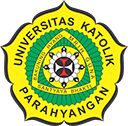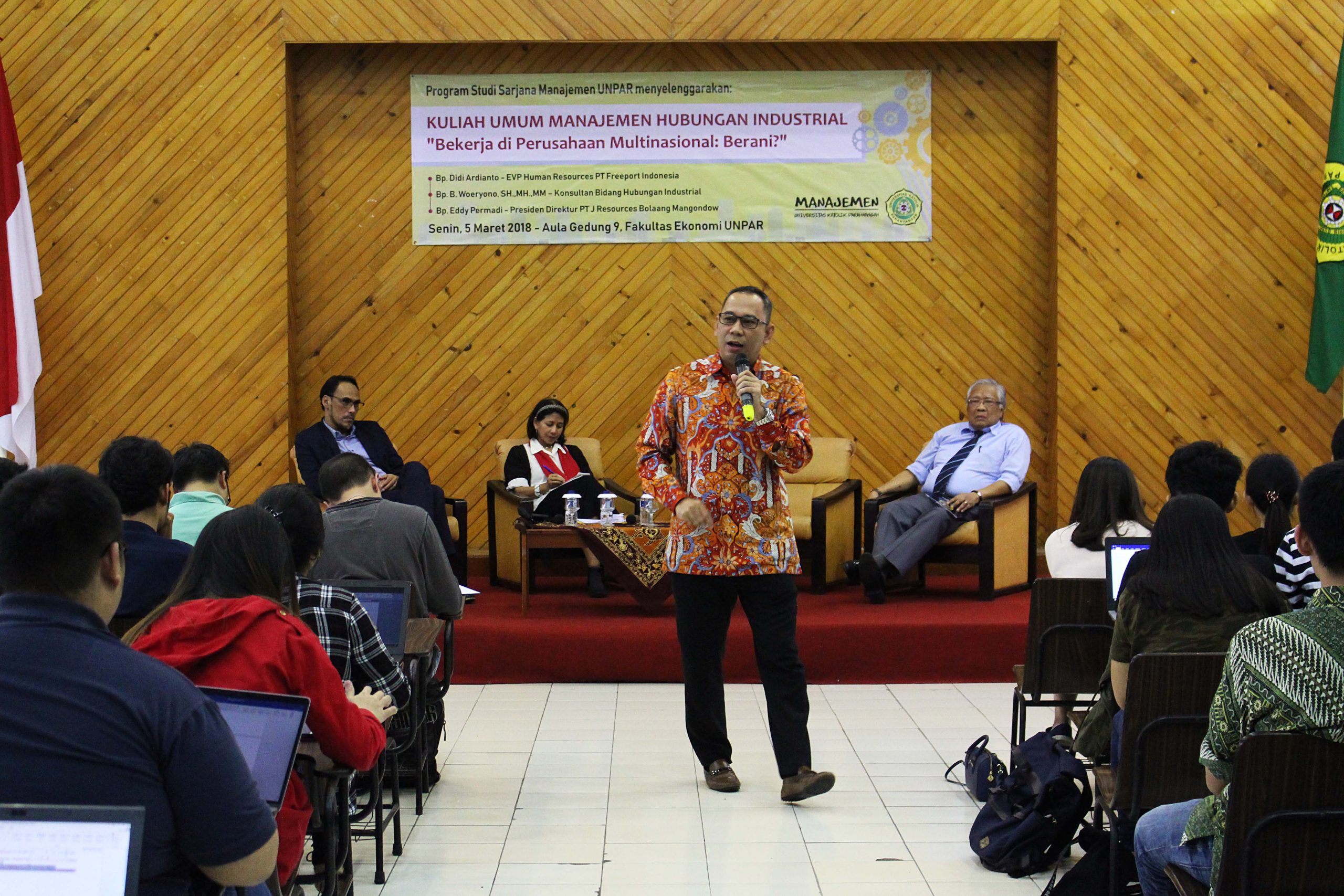It has been more than two years since Indonesia joined the ASEAN Economic Community (AEC) (Masyarakat Ekonomi ASEAN). With this concept, ASEAN countries agreed to create a single market and free trade system. In addition to improving competitiveness, AEC also aims to improve economic stability in the ASEAN region. The clear impact that MEA has on Indonesia is the creation of a free market in capital, goods and services, and labor.
Free markets are not an entirely new concept for Indonesia. For years, foreign or multinational companies bared their fangs in the homeland. Foreign workers are also allowed to find a job and earn a living in Indonesia. The AEC only makes the free market bigger. As a result, local workers must become more persistent when working, as now their rivals are not only workers from inside the country but also workers across the country.
To raise awareness and increase students’ knowledge with regard to the above topic, UNPAR’s Management Study Program held a public lecture on Industrial Relations Management. The subtopic chosen was “Working in Multinational Companies: Do You Dare?”. The lecture was held on Monday, May 3, in Building 9 Hall, belonging to the UNPAR’s Faculty of Economics from 13:00 until 15:30. The lecture was attended by more than 200 students, most of whom were students from the Management Study Program.
Three speakers were invited to share their knowledge and experiences in this lecture. They are Mr. Didi Arianto (EVP of Human Resources for PT Freeport Indonesia), Mr. B. Woeryono (Industrial Relations Consultant), and Mr. Edi Permadi (President Director for PT J Resources Bolaang Mongondow). Ms. Indrasari Tjandraningsih was one of the lecturers in the Faculty of Economics who acted as the moderator in the lecture.
Each speaker was given 20 minutes to share his experience. Didi Arianto explained how he managed the human resources who work in PT Freeport, with the number of workers reaching 33 thousand being one of the bigger challenges he faced. He needed to manage cultural differences, races, and other matters well to ensure the company’s productivity.
Edi Permadi became the second speaker to share knowledge. PT J Resources Bolaang Mongondow is a gold mining company with exploration areas in Indonesia and Malaysia. As a president director, Edi told us about the values that his company upholds. In addition to the skills that are certainly needed by the workers, PT J Resources Bolaang Mongondow also instilled company values that are: ownership, integrity, passion, innovation, and respect. B. Woeryono, the last speaker, mostly told us about his experiences as an industrial relations consultant. He also touched on many aspects of labor law. As someone who has been a consultant and helped many large companies such as Salim Group, PT Toshiba, PT Panasonic, PT Sumitomo, and many more, Woeryono concluded that there are four principles that can be used as guidelines in industrial relations.
The four principles are as follows: 1. common interest (entrepreneurs, workers, and governments); 2. kinship, deliberation, and good faith; 3. harmony, dynamics, and justice; and 4. maintaining mental peace in business and work. Lastly, he conveyed a message to students attending the lecture to improve their soft skills in communication and negotiation.
The last 40 minutes of the Industrial Relations Management public lecture were used for a question and answer session. The lecture was then concluded with a small quiz in which the three speakers asked the students some questions. Those who managed to answer the questions given were rewarded with a book as the prize.


